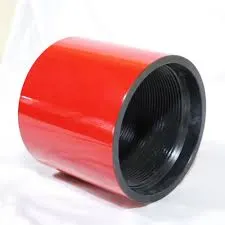- Afrikaans
- Albanian
- Amharic
- Arabic
- Armenian
- Azerbaijani
- Basque
- Belarusian
- Bengali
- Bosnian
- Bulgarian
- Catalan
- Cebuano
- Corsican
- Croatian
- Czech
- Danish
- Dutch
- English
- Esperanto
- Estonian
- Finnish
- French
- Frisian
- Galician
- Georgian
- German
- Greek
- Gujarati
- Haitian Creole
- hausa
- hawaiian
- Hebrew
- Hindi
- Miao
- Hungarian
- Icelandic
- igbo
- Indonesian
- irish
- Italian
- Japanese
- Javanese
- Kannada
- kazakh
- Khmer
- Rwandese
- Korean
- Kurdish
- Kyrgyz
- Lao
- Latin
- Latvian
- Lithuanian
- Luxembourgish
- Macedonian
- Malgashi
- Malay
- Malayalam
- Maltese
- Maori
- Marathi
- Mongolian
- Myanmar
- Nepali
- Norwegian
- Norwegian
- Occitan
- Pashto
- Persian
- Polish
- Portuguese
- Punjabi
- Romanian
- Russian
- Samoan
- Scottish Gaelic
- Serbian
- Sesotho
- Shona
- Sindhi
- Sinhala
- Slovak
- Slovenian
- Somali
- Spanish
- Sundanese
- Swahili
- Swedish
- Tagalog
- Tajik
- Tamil
- Tatar
- Telugu
- Thai
- Turkish
- Turkmen
- Ukrainian
- Urdu
- Uighur
- Uzbek
- Vietnamese
- Welsh
- Bantu
- Yiddish
- Yoruba
- Zulu
High-Quality Galvanized Steel Pipe Couplings for Durable Connections and Seamless Installation
Understanding Galvanized Steel Pipe Couplings
Galvanized steel pipe couplings play a crucial role in various construction, plumbing, and industrial applications. As an integral component, these couplings are designed to connect two lengths of galvanized steel pipe, ensuring a secure and leak-free joint. In this article, we will explore the characteristics, applications, benefits, and considerations surrounding galvanized steel pipe couplings.
What is Galvanization?
Galvanization is the process of applying a protective zinc coating to steel or iron to prevent rusting and corrosion. This technique has been extensively used in constructing pipes that are exposed to harsh environments, such as plumbing systems, which may involve contact with moisture and chemicals. Galvanized steel effectively resists corrosion, making it an ideal choice for both indoor and outdoor applications.
Characteristics of Galvanized Steel Pipe Couplings
Galvanized steel pipe couplings come in various sizes and configurations to accommodate the needs of different systems. Generally, they are manufactured from high-quality steel that undergoes a galvanization process, offering enhanced durability and resistance to the elements.
Key characteristics include 1. Corrosion Resistance The zinc coating provides a barrier against moisture and other corrosive elements, extending the lifespan of the coupling. 2. Strength and Durability Galvanized steel is known for its high tensile strength, which allows for reliable connections that can withstand substantial pressure. 3. Versatility These couplings can be used in multiple applications, including water supply lines, gas lines, and industrial piping systems.
Applications of Galvanized Steel Pipe Couplings
Galvanized steel pipe couplings find their usage in a wide range of industries. Some of the primary applications include
galvanized steel pipe coupling

1. Plumbing Systems In residential and commercial plumbing, these couplings are often used to join pipes for water supply and drainage systems. 2. HVAC Systems They are used in heating, ventilation, and air conditioning (HVAC) systems to connect ductwork securely. 3. Industrial Applications In various industrial settings, galvanized pipe couplings are employed to transport air, gas, or liquids through piping systems. 4. Construction They play a significant role in scaffolding and structural applications where steel pipes are used for support.
Benefits of Using Galvanized Steel Pipe Couplings
The use of galvanized steel pipe couplings provides several advantages
1. Long Lifespan The protective zinc layer prevents rusting, allowing these couplings to last longer than non-galvanized alternatives. 2. Low Maintenance Due to their resistance to corrosion, galvanized couplings require less frequent inspections and replacements, reducing overall maintenance efforts and costs. 3. Cost-Effective While the initial investment may be higher than other materials, the longevity and durability of galvanized steel couplings can lead to savings over time. 4. Safety Their strong construction and corrosion resistance ensure secure connections, minimizing the risk of leaks and failures in critical systems.
Considerations When Using Galvanized Steel Pipe Couplings
Despite their many advantages, certain considerations should be noted when utilizing galvanized steel pipe couplings
1. Welding Compatibility When welding galvanized steel, the zinc coating may produce harmful fumes. Proper ventilation and safety equipment are essential. 2. Dirty Cut Ends If a pipe is cut, the exposed ends should be cleaned and re-galvanized or painted to maintain corrosion resistance. 3. Chemical Compatibility Certain chemicals, especially solvents and acids, can compromise the protective zinc layer. It’s essential to assess the chemical compatibility of the pipes and couplings being used.
Conclusion
Galvanized steel pipe couplings are a fundamental component in many piping systems across various industries. Their strength, longevity, reliability, and resistance to corrosion make them an excellent choice for both indoor and outdoor applications. As with any construction material, understanding their characteristics, benefits, and potential challenges is essential for achieving the best performance and safety in your projects. By making informed decisions regarding the use of galvanized steel pipe couplings, you can ensure the integrity and reliability of your piping systems for years to come.
-
Tubing Pup Joints: Essential Components for Oil and Gas OperationsNewsJul.10,2025
-
Pup Joints: Essential Components for Reliable Drilling OperationsNewsJul.10,2025
-
Pipe Couplings: Connecting Your World EfficientlyNewsJul.10,2025
-
Mastering Oilfield Operations with Quality Tubing and CasingNewsJul.10,2025
-
High-Quality Casing Couplings for Every NeedNewsJul.10,2025
-
Boost Your Drilling Efficiency with Premium Crossover Tools & Seating NipplesNewsJul.10,2025







